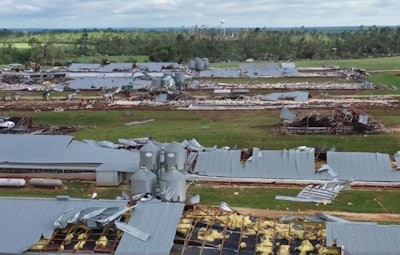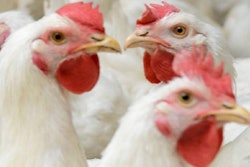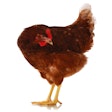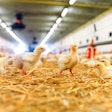
Tornadoes and damaging storms that swept through the state on the afternoon and evening of April 12, killing 11 Mississippians also caused devastating losses to growers in the poultry industry.
Tom Tabler, poultry specialist with the Mississippi State University Extension Service, said the most significant damage to the state’s poultry industry occurred in the Covington County area near Collins, Mississippi. Poultry was worth an estimated $2.7 billion to the state in 2019.
Early indications are that at least 90 poultry houses were damaged or destroyed in the Easter tornadoes, along with an additional six breeder houses. Other houses are operating on generators for power. Reports continued to come in through the day on April 13 as roads were cleared of trees, and damage estimates may rise.
“Sanderson Farms’ growers suffered the most losses, with at least 60 broiler houses and six breeder houses destroyed in the Collins area,” Tabler said. “They also had breeder houses destroyed at some of their other locations.”
Wayne Farms’ growers have about 20 houses with some damage in the Laurel/Soso area. Many of these houses did not have birds in them when they were hit. Growers for Peco Foods at Bay Springs had heavy losses, with 11 houses that are either down or damaged. By noon on April 13, officials had not been able to confirm other damage.
Facilities associated with Tyson Foods, located mostly around Carthage, Forest and Magee, seems to have experienced no damage from the Easter storms. Mar-Jac, with facilities mostly in the Waynesboro area, also seems to have suffered no poultry losses, but a broiler manager lost his personal house to the storms.
“Although some houses were between flocks and empty, many of these houses had chickens in them,” Tabler said. “Some would have been chicks just a few days old, while others would have been flocks nearly ready for harvest.”
The Mississippi Board of Animal Health is involved with the live animals. When possible, chickens are moved to other houses.
Mary Beck, head of the MSU Department of Poultry Science, commented on the devastating effects the tornados had to the poultry industry in Mississippi, particularly to Peco, Wayne and Sanderson Farms.
“As always when disaster strikes this industry that is so important to this state, Mississippi State University and the poultry science department Extension team are here to help in any way we can,” Beck said. “We are available by phone, text, email and videoconferencing to answer questions or provide expertise on topics ranging from bird welfare to grower safety.”
No dollar figure has been assigned yet to the losses, but Tabler provided some specifics to help grasp the magnitude of the losses.
“A new broiler house today is 46 feet wide by 500 feet long or sometimes longer,” Tabler said. “Depending on the features built into the house, they may cost $300,000 to $325,000 per house and raise about 25,000 chickens.”
James Henderson is the head of the MSU Coastal Research and Extension Center in Biloxi, which includes 21 county Extension offices in southeast Mississippi where the poultry industry was hardest hit.
“The poultry industry and contract growers in South Mississippi took a big hit yesterday with the tornado damage, but Extension agents in every county and the state specialists at MSU are ready to help and provide guidance as farmers, timberland owners, and food and fiber industry producers work to move forward on the path to recovery,” Henderson said.


















